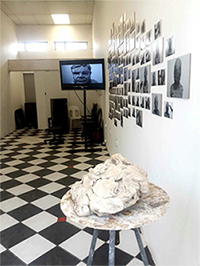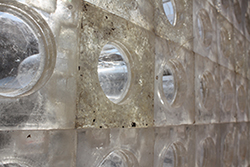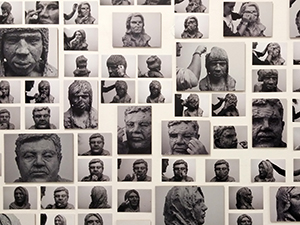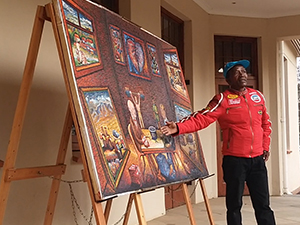Latest News Archive
Please select Category, Year, and then Month to display items
12 October 2020
|
Story Arina Engelbrecht
|
Photo Supplied
 Arina Engelbrecht from Organisational Development and Employee Well-being believes physical activity has a number of benefits for one’s health, including stress relief.
Arina Engelbrecht from Organisational Development and Employee Well-being believes physical activity has a number of benefits for one’s health, including stress relief.
Being physically active plays a big role in preventing the development of mental-health problems and in improving the quality of life of people experiencing mental-health problems.
Treatment for depression
Physical activity can be an alternative treatment for depression. It can be used as a stand-alone treatment or in combination with medication and/or psychological therapy. It promotes all kinds of changes in the brain, including neural growth, reduced inflammation, and new activity patterns are formed that promote feelings of calm and well-being. It releases endorphins – powerful chemicals in the brain that energise your spirit and make you feel good.
Physical activity can be very effective in relieving stress. Research in adults has found that physically active individuals tend to have lower stress levels compared to individuals who are less active. It also leads to improved sleep. When a person sleeps better and feels more rested, overall quality of life improves. They cope better with daily life stressors.
Reduce Alzheimer's risk
Regular physical activity can reduce your risk of developing Alzheimer's disease by up to 50%. It can also slow down further deterioration in those who have already started to develop cognitive problems. It stimulates the brain’s ability to maintain old connections as well as to make new ones.
A study asked people to rate their mood immediately after periods of physical activity (e.g. going for a walk/run, cycling, doing housework) and periods of inactivity (e.g. reading a book or watching television). Researchers found that participants felt more content, more awake, and calmer after being physically active compared to after periods of inactivity.
In conclusion, people who are physically active feel a sense of well-being, feel more energetic throughout the day, sleep better at night, have sharper memories, and feel more relaxed and positive about themselves and their lives.
“Being physically active not only changes your body, it changes your mind,
attitude, and your mood.” – Arina Engelbrecht
Social cohesion tops the agenda at arts week
2015-08-31

What’s the Difference deur Tanya Britz
Photo: Lelanie de Wet |
Launching the annual Arts 4 Social Justice (A4SJ) week, taking place from 12-19 August 2015 at the Institute for Reconciliation and Social Justice (IRSJ) the Bloemfontein Campus was alive with artworks placed in various buildings and open spaces.
Angelo Mockie said, “This is an opportunity to share knowledge.” Mockie is the coordinator of the annual Arts 4 Social Justice week which gives artists a platform to convey their experiences, and engage students and the public on social issues of national significance.

Meaningful Places deur Adelheid von Maltitz, bygestaan deur Nicolene Jonker en Xoliswa Msimango
Photo: Michelle Nothling |
Coinciding with the week’s events, the IRSJ launched the National Flagship Project in the Visual Arts, funded by the National Arts Council. The theme of the project is ‘Emancipating the African voice in the visual arts for social cohesion purposes’. According to Mockie, “this endeavour is crucial to confronting the histories, policies, and practices that have shaped and constrained the intellectual and social mandates of higher education institutions.”
Adelheid von Maltitz, Klas Thibeletsa, Richard Bollers, and Jaco Spies were some of the artists exhibiting their creative work. A host of students from the university’s Fine Arts Department also presented their works across the campus.
The focus on social justice aims to inspire audiences toward developing engaged citizenship and cohesive communities.

What’s the Difference deur Tanya Britz
Photo: Michelle Nothling | 
History is the Required Process by Motseokae Klas Thibeletsa
|